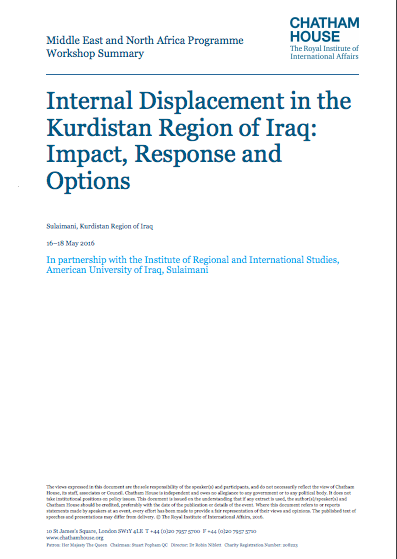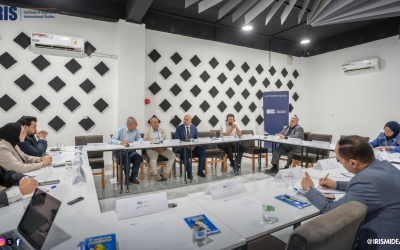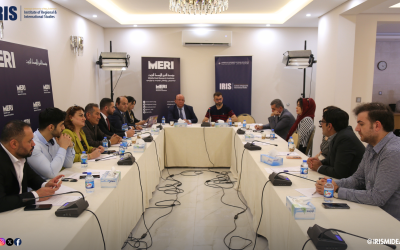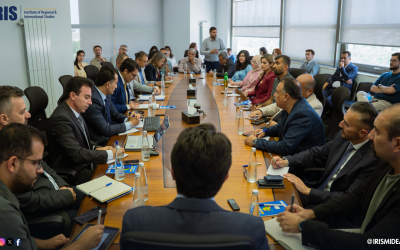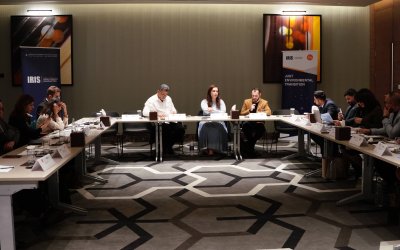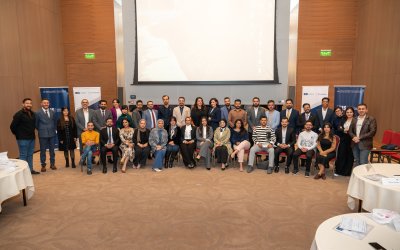With the start of the Syrian revolution in 2011, and the rise and expansion of ISIS in 2014, yet another wave of displacement and migration took place in the Middle East, both within and across borders. Iraq is at the epicentre of the movement: as of March 2016, the International Organization of Migration’s (IOM) Displacement Tracking Index indicates that over 3.4m Iraqis are internally displaced. More particularly, the Kurdistan Region of Iraq (KRI) is estimated to be hosting 925,000 internally displaced persons (IDPs), as well as about 250,000 Syrian refugees.
To address this ongoing crisis, the London-based independent policy institute Chatham House and the Institute of Regional and International Studies (IRIS), the research center housed at the American University of Iraq, Sulaimani (AUIS), hosted a workshop at AUIS on policy options and response.
The first part of the workshop convened representatives of local communities and civil society impacted by the crisis, alongside international NGOs and multilateral organisations, policy analysts and leading international experts, to explore and analyse the social, economic and political impacts of the displacement crisis in the KRI. An assessment of the effectiveness of the response at the local, national and international levels, in mitigating these impacts was also conducted, before exploring options for how the response could be improved. The second part of the workshop gathered policymakers from all governorates of the KRI, as well as from the federal government of Iraq in Baghdad, to present the findings and policy options developed by civil society participants, as well as to hear their perspective on the current state of response to the crisis.
The meeting was held under the Chatham House rule, which states that: "When a meeting, or part thereof, is held under the Chatham House Rule, participants are free to use the information received, but neither the identity nor the affiliation of the speaker(s), nor that of any other participant, may be revealed." This allowed for free conversation and debates, the result of which is a recommendations report, which can be accessed here.

